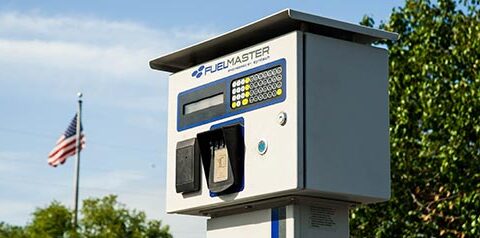Fueling Construction Sites: Challenges and Solutions
Fueling construction sites is a critical component in ensuring the smooth operation of construction projects. Heavy machinery and equipment require a constant and reliable supply of fuel to maintain productivity and meet project deadlines. However, managing construction site fuel solutions presents numerous challenges, from logistical hurdles to safety concerns. In this blog, we will explore the key fuel challenges in construction and discuss effective construction fuel management strategies to overcome them.
Challenges in Fueling Construction Sites
Logistical Complexities
One of the primary fuel challenges in construction is the logistical complexity involved in supplying fuel to various locations, especially in remote or hard-to-reach areas. Construction sites are often spread out, requiring precise coordination to ensure that fuel is delivered where and when it is needed. Delays in fuel delivery can halt operations, leading to costly downtime. Additionally, inconsistent fuel deliveries can disrupt project schedules, making it difficult to adhere to tight deadlines and causing a ripple effect on the overall project timeline.
Fuel Quality and Contamination
Maintaining the quality of fuel is essential for the efficient operation of heavy machinery. Contaminated fuel can cause significant damage to engines and other components, leading to expensive repairs and maintenance. Ensuring that the fuel supply remains uncontaminated throughout its journey from the supplier to the machinery is a constant challenge. Fuel contamination can occur at various points in the supply chain, including during storage, transportation, and dispensing. Water, dirt, and other impurities can enter the fuel, compromising its quality and efficiency.
Safety Concerns
Fuel safety at construction sites is paramount due to the highly flammable nature of diesel and other fuels. Proper storage, handling, and dispensing protocols must be followed to prevent accidents and ensure the safety of all personnel on-site. Inadequate safety measures can result in fires, explosions, and environmental hazards. The risks associated with fuel handling necessitate rigorous safety training for all employees, regular safety audits, and the implementation of comprehensive emergency response plans.
Environmental Regulations
Construction sites must comply with stringent environmental regulations regarding fuel storage and handling. These regulations are designed to prevent spills and leaks that could contaminate the soil and water sources. Compliance requires regular inspections, proper documentation, and adherence to best practices in fuel management. Non-compliance with environmental regulations can result in hefty fines, legal liabilities, and damage to the company’s reputation. Therefore, construction companies must stay updated with regulatory changes and ensure that their fuel management practices align with the latest standards.
Cost Management
Fuel costs constitute a significant portion of the overall budget for construction projects. Fluctuating fuel prices and inefficient fuel usage can escalate costs, impacting the project’s profitability. Effective construction fuel management strategies are essential to control expenses and optimize fuel consumption. Fuel theft, pilferage, and unauthorized use are also common issues that can inflate fuel costs. Implementing robust monitoring and control systems is crucial to mitigate these risks and ensure that fuel is used efficiently and responsibly.
Solutions for Effective Construction Fuel Management
On-Site Fuel Tanks
Utilizing on-site fuel tanks is one of the most effective construction site fuel solutions. These tanks ensure a steady supply of fuel and minimize downtime caused by delivery delays. On-site tanks can be customized to meet specific needs, including single-walled, double-walled, concrete vaulted tanks and the versatile FuelCube. Proper installation and regular maintenance of these tanks are crucial for their efficient operation. On-site tanks also offer the convenience of bulk storage, reducing the need for frequent refueling trips and minimizing the risk of fuel shortages.
Scheduled Deliveries
Coordinating scheduled fuel deliveries can help manage the supply chain more efficiently. By working closely with a reliable fuel distributor, construction companies can plan deliveries to match their consumption patterns, ensuring that fuel is always available when needed. This proactive approach helps avoid unexpected shortages and reduces the risk of operational disruptions. Establishing a strong relationship with a trusted fuel supplier ensures timely deliveries, competitive pricing, and consistent fuel quality, further enhancing project efficiency.
Fuel Monitoring Systems
Implementing advanced fuel monitoring systems allows for real-time tracking of fuel levels, usage patterns, and potential leaks. These systems provide valuable data that can be used to optimize fuel consumption and prevent wastage. Automated alerts can notify site managers when fuel levels are low, enabling timely reordering and avoiding stockouts. Additionally, fuel monitoring systems can detect anomalies in fuel usage, helping to identify potential issues such as theft or equipment inefficiencies. By leveraging data-driven insights, construction companies can make informed decisions to enhance fuel efficiency and lower operational costs.
Quality Control Measures
To address the issue of fuel contamination, construction sites should adopt stringent quality control measures. This includes using high-quality fuel from reputable suppliers and regularly testing the fuel for contaminants. Proper filtration systems should be installed to remove impurities before the fuel reaches the machinery. Routine maintenance of storage tanks and dispensing equipment is important to prevent contamination and ensure that the fuel remains clean and efficient. Implementing a robust quality control protocol can significantly reduce the risk of equipment damage and operational disruptions caused by contaminated fuel.
Safety Protocols and Training
Ensuring fuel safety at construction sites requires comprehensive safety protocols and regular training for all personnel involved in fuel handling. This includes proper storage practices, safe dispensing procedures, and emergency response plans. Regular safety drills and inspections help reinforce these protocols and ensure compliance. Training programs should cover topics such as fire prevention, spill containment, and the proper use of personal protective equipment (PPE). By fostering a culture of safety and vigilance, construction companies can mitigate the risks associated with fuel handling and protect their workforce and assets.
Compliance with Environmental Regulations
Construction companies must stay updated with environmental regulations and implement best practices to ensure compliance. This involves regular inspections, proper documentation, and immediate action in case of spills or leaks. Using eco-friendly fuel options and adopting sustainable practices can also help mitigate environmental impact. Implementing spill prevention and response plans, utilizing secondary containment systems, and conducting regular environmental audits are essential steps to maintain compliance and minimize the environmental footprint of construction activities. By prioritizing environmental stewardship, construction companies can enhance their reputation and contribute to sustainable development.
Cost Management Strategies
Effective construction fuel management includes implementing strategies to control fuel costs. This can involve negotiating bulk purchase agreements with suppliers, optimizing machinery operation to reduce fuel consumption, and using fuel-efficient equipment. Monitoring fuel usage and identifying areas for improvement can lead to notable cost savings over time. Adopting fuel management software can streamline the tracking and analysis of fuel consumption, enabling construction companies to identify inefficiencies and implement corrective measures. Additionally, exploring alternative fuels and renewable energy sources can further reduce dependence on traditional fuels and lower overall operating costs.
Conclusion
Fueling construction sites involves navigating a complex landscape of logistical, safety, and environmental challenges. By implementing effective construction site fuel solutions, companies can ensure a reliable fuel supply, maintain operational efficiency, and enhance safety standards. For reliable and efficient fuel solutions, consider partnering with Ricochet Fuel Distributors. Visit their On-Site Tanks Services page to learn more.


